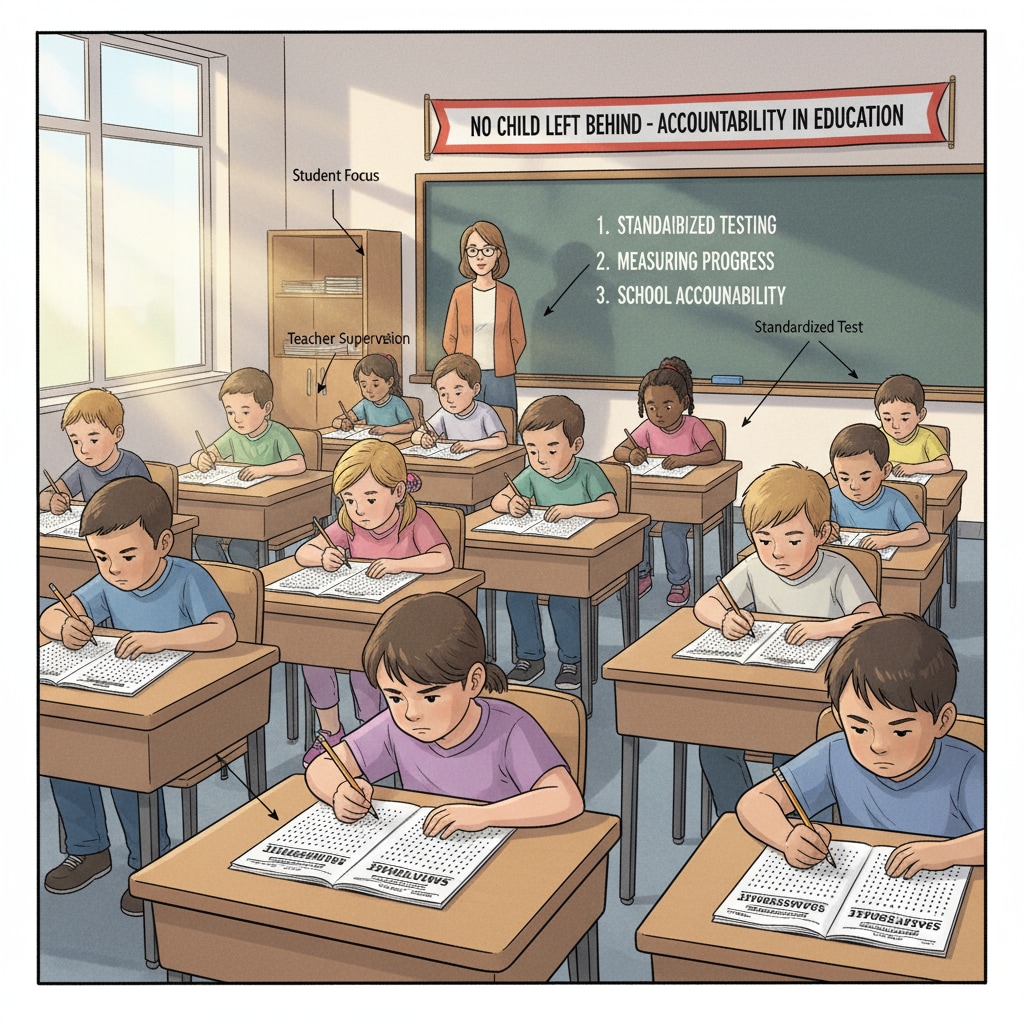Educational accountability, the NCLB Act, and educational transformation have been integral parts of the American education narrative. The No Child Left Behind (NCLB) Act, a significant piece of legislation, has had a far-reaching impact on the US education system. This act was designed to enhance educational accountability, aiming to ensure that every child receives a quality education. However, its implementation has brought about both positive and negative consequences, as experienced by teachers on the front lines.

The NCLB Act: A Catalyst for Change
The NCLB Act was introduced with noble intentions. It sought to close the achievement gap among different student groups by setting high standards and holding schools accountable for student performance. For example, schools were required to administer standardized tests annually to measure student progress. This led to an increased focus on academic achievement, as schools strived to meet the targets set by the act. Learn more about the NCLB Act on Wikipedia
Changes in the Classroom Environment
Teachers witnessed a significant shift in the classroom environment due to the NCLB Act. With the emphasis on standardized testing, teaching methods often had to be adjusted. There was a greater push towards teaching to the test, which meant that some aspects of a well-rounded education, such as art and music, were sometimes sidelined. However, it also led to more structured and focused lessons, as teachers aimed to prepare students for the tests.

The NCLB Act also increased the pressure on teachers. They were not only responsible for teaching the curriculum but also ensuring that students performed well on the standardized tests. This often led to longer working hours and increased stress levels for educators. As a result, some teachers felt that their creativity in teaching was somewhat restricted, as they had to follow a more rigid teaching plan to meet the requirements of the act.
Impact on School Culture
In addition to the classroom changes, the NCLB Act had a profound impact on school culture. Schools that did not meet the performance targets faced various sanctions, which led to a competitive environment among schools. This competition, while intended to drive improvement, sometimes created a sense of anxiety and stress among students and staff. Schools started to focus more on test scores as a measure of success, rather than considering other aspects of student development, such as character building and social skills.
However, on the positive side, the NCLB Act also encouraged collaboration among teachers. Since the success of the school depended on overall student performance, teachers often worked together to share teaching strategies and resources. This collaboration helped in improving the overall quality of education in some cases.
Readability guidance: By presenting the impact of the NCLB Act in short paragraphs and lists, it becomes easier to understand the complex relationship between educational accountability, the NCLB Act, and educational transformation. The use of transition words like “however” and “in addition” helps in creating a smooth flow of ideas.


